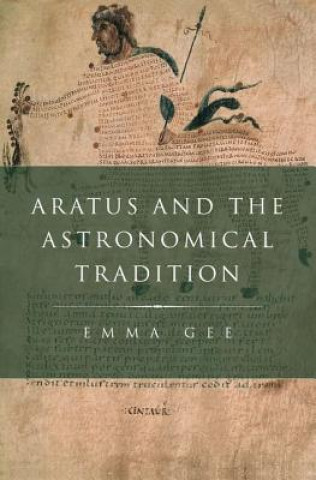
Kód: 02686432
Aratus and the Astronomical Tradition
Autor Emma Gee
Why were the stars so important in Rome? Their literary presence far outweighs their role as a time-reckoning device, which was in any case superseded by the synchronization of the civil and solar years under Julius Caesar. One an ... celý popis
- Jazyk:
 Angličtina
Angličtina - Vazba: Pevná
- Počet stran: 320
Nakladatelství: Oxford University Press Inc, 2013
- Více informací o knize

Mohlo by se vám také líbit
-

Silius Italicus' Punica
1702 Kč -

Commentary on Silius Italicus' Punica 10
4639 Kč -

Sextus Julius Frontinus and the Roman Empire
987 Kč -

How to Smoke Pot (Properly)
407 Kč -

Eutropius
488 Kč -
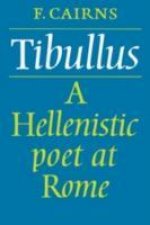
Tibullus: A Hellenistic Poet at Rome
921 Kč -

Old English Orosius
1060 Kč -

Attachment and Interaction
1299 Kč -
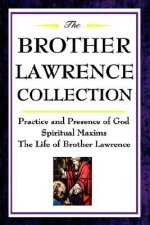
Brother Lawrence Collection
465 Kč -

Cross Rhodes
415 Kč -

Preserving the Arton Federation
948 Kč -

Frederic Chopin
306 Kč -

Learn to Knit
312 Kč -

Clockwork Dagger
363 Kč -

All I Want Is a Job!
3116 Kč -

Celluloid Ceiling
574 Kč -

Vitamins and Cancer
3313 Kč -

Combinatorial Algorithms on Words, 1
1681 Kč -

Clean-up of Former Soviet Military Installations
1681 Kč -
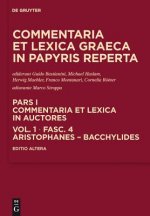
Aristophanes - Bacchylides
5653 Kč -

Wald - Erholung und Grauen
671 Kč
Dárkový poukaz: Radost zaručena
- Darujte poukaz v libovolné hodnotě a my se postaráme o zbytek.
- Poukaz se vztahuje na celou naši nabídku.
- Elektronický poukaz vytisknete z e-mailu a můžete ihned darovat.
- Platnost poukazu je 12 měsíců od data vystavení.
Více informací o knize Aratus and the Astronomical Tradition
Nákupem získáte 397 bodů
 Anotace knihy
Anotace knihy
Why were the stars so important in Rome? Their literary presence far outweighs their role as a time-reckoning device, which was in any case superseded by the synchronization of the civil and solar years under Julius Caesar. One answer is their usefulness in symbolizing a universe built on "intelligent design." Predominantly in ancient literature, the stars are seen as the gods' graffiti in the ordered heaven. Moreover, particularly in the Roman world, divine and human governance came to be linked, with one striking manifestation of this connection being the predicted enjoyment of a celestial afterlife by emperors. Aratus' Phaenomena, which describes the layout of the heavens and their effect, through weather, on the lives of men, was an ideal text for expressing such relationships: its didactic style was both accessible and elegant, and it combined the stars with notions of divine and human order. In especially the late Republic extending until the age of Christian humanism, the impact of this poem on the literary environment is out of all proportion to its relatively modest size and the obscurity of its subject matter. It was translated into Latin many times between the first century BC and the Renaissance, and carried lasting influence outside its immediate genre. Aratus and the Astronomical Tradition answers the question of Aratus' popularity by looking at the poem in the light of Western cosmology. It argues that the Phaenomena is the ideal vehicle for the integration of astronomical 'data' into abstract cosmology, a defining feature of the Western tradition. This book embeds Aratus' text into a close network of textual interactions, beginning with the text itself and ending in the sixteenth century, with Copernicus. All conversations between the text and its successors experiment in some way with the balance between cosmology and information. The text was not an inert objet d'art, but a dynamic entity which took on colors often contradictory in the ongoing debate about the place and role of the stars in the world. In this debate Aratus plays a leading, but by no means lonely, role. With this study, students and scholars will have the capability to understand this mysterious poem's place in the unique development of Western cosmology.
 Parametry knihy
Parametry knihy
Zařazení knihy Knihy v angličtině Literature & literary studies Literature: history & criticism Literary studies: general
3969 Kč
- Plný název: Aratus and the Astronomical Tradition
- Autor: Emma Gee
- Jazyk:
 Angličtina
Angličtina - Vazba: Pevná
- Počet stran: 320
- EAN: 9780199781683
- ISBN: 0199781680
- ID: 02686432
- Nakladatelství: Oxford University Press Inc
- Hmotnost: 554 g
- Rozměry: 163 × 235 × 26 mm
- Datum vydání: 14. November 2013
Oblíbené z jiného soudku
-

How to Read a Book
303 Kč -

Hamlet: The Oxford Shakespeare
254 Kč -
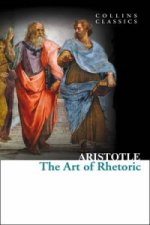
Art of Rhetoric
90 Kč -
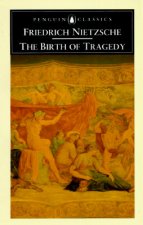
Birth of Tragedy
250 Kč -

Selected Essays
276 Kč -

Complete Short Stories of Ambrose Bierce
493 Kč -

Serpent Power
519 Kč -

Moby-Dick
465 Kč -

Annotated Alice
306 Kč -

Nordic Noir
410 Kč -

Children's Fantasy Literature
669 Kč -

Marquis de Sade: A Very Short Introduction
227 Kč -

Mysteries of Udolpho
286 Kč -

Joseph Andrews and Shamela
226 Kč -
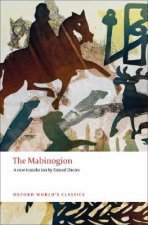
Mabinogion
276 Kč -

The Picture of Dorian Gray
182 Kč -
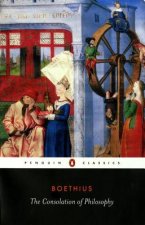
Consolation of Philosophy
276 Kč -

Seven Basic Plots
545 Kč -

Gulliver's Travels
170 Kč -

Life of Samuel Johnson
623 Kč -

Powers of Horror
977 Kč -

Road to Hel
1460 Kč -

Sejong Korean Student Book 2A - English Edition, m. 1 Audio
732 Kč -

Anna Karenina
218 Kč -

Wide Sargasso Sea
223 Kč -
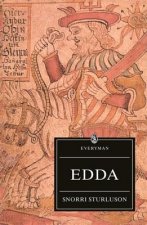
Edda
240 Kč -

Finn and Hengest
250 Kč -
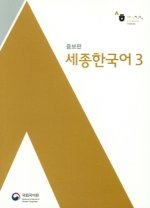
Sejong Korean 3, m. 1 Audio
680 Kč -
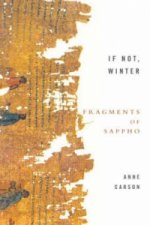
If Not, Winter: Fragments Of Sappho
464 Kč -

Africa's Tarnished Name
101 Kč -

Complete Poetry
197 Kč -

Captain is Out to Lunch
276 Kč -

Devils
268 Kč -

Two Treatises of Government
255 Kč -

Count of Monte Cristo
276 Kč -

Sejong Korean 2 (Korean+English Version), m. 1 Audio
680 Kč -

Moveable Feast
254 Kč -

Moveable Feast
276 Kč -
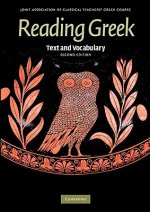
Reading Greek
946 Kč -

Dream Story
276 Kč -
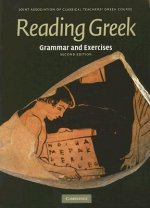
Reading Greek
1072 Kč -

Analysis of Donna Haraway's A Cyborg Manifesto
227 Kč -
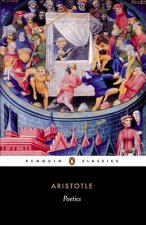
Poetics
276 Kč -

Selected Journals of Lm Montgomery Volume III 1921-1929
500 Kč -

Leaves of Grass
442 Kč -
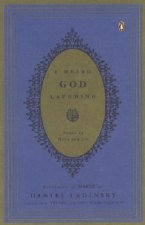
I Heard God Laughing
382 Kč -

Tragedy of King Richard III: The Oxford Shakespeare
234 Kč -

Sejong Korean Student Book 1B - Korean Version, m. 1 Audio
732 Kč -

Wild Ass's Skin
316 Kč
Osobní odběr Praha, Brno a 12903 dalších
Copyright ©2008-24 nejlevnejsi-knihy.cz Všechna práva vyhrazenaSoukromíCookies



 Vrácení do měsíce
Vrácení do měsíce 571 999 099 (8-15.30h)
571 999 099 (8-15.30h)